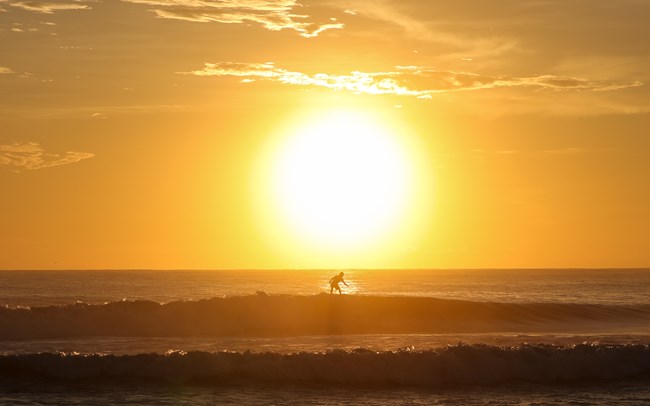
NPS/Photo Roman Heat Related IllnessHeat Related illness can occur anywhere, especially in the summer season. There are precautions that can be taken to ensure you have a safe and fun day at the beach. Heat stroke, heat exhaustion, heat cramps, sunburns, and heat rash are examples or heat-related illness. Heat-related illnesses are serious and can lead to death if not treated quickly. Stay cool, hydrated, and informed to beat the heat while visiting the park! If you plan to visit the park on a hot day or be out in the sun all day, follow these safety tips:
Rip CurrentsA rip current is a current that flows away from the beach. These currents can extend from the near shore through the surf zone to out past the breaking waves. The surf zone streches from the high tide line out to the breaking waves. If you find yourself caught in a rip current, do not swim against the current. Stay calm, swim parallel to the shore, and slowly work your way back to shore at an angle. If you have an emergency call 911.

NPS/photo Jelly FishDuring summer months the warm waters cause creatures such as jellyfish and man-o-war to multiply. Tides can cause them to wash in shore where people swim. Look out for this balloon like creature with purplish tentacles on our beaches at this moment. While enjoying the beach you may want to carry a bottle of vinegar with you. If you get stung vinegar will help neutralize the sting. Also you must remove any tentacle stingers that may stick on your skin (sand helps). Hot water also helps neutralize the sting. Keep in mind that they travel with the currents so may come and go seasonally.Safety FirstSafety Tips
|
Last updated: August 19, 2025
